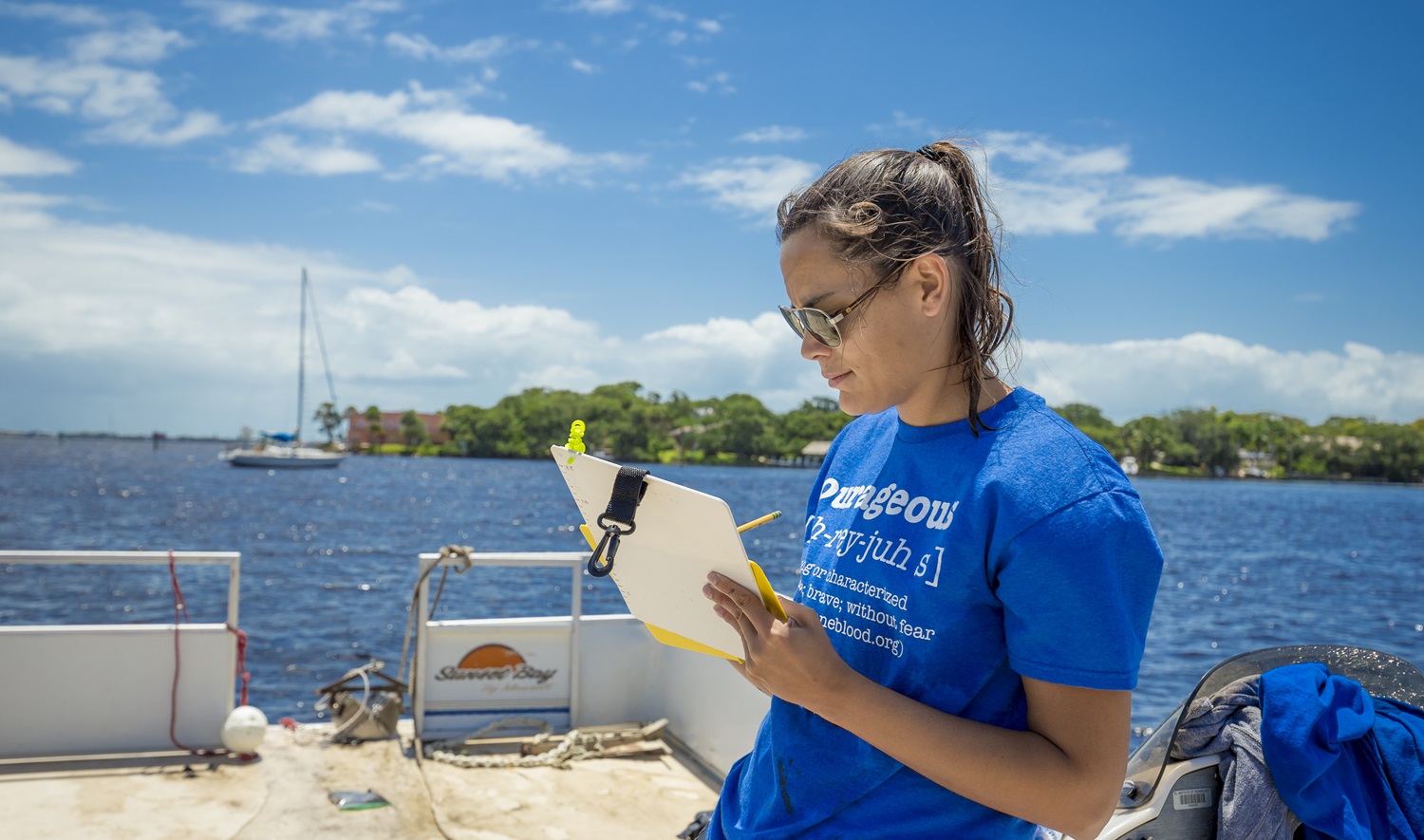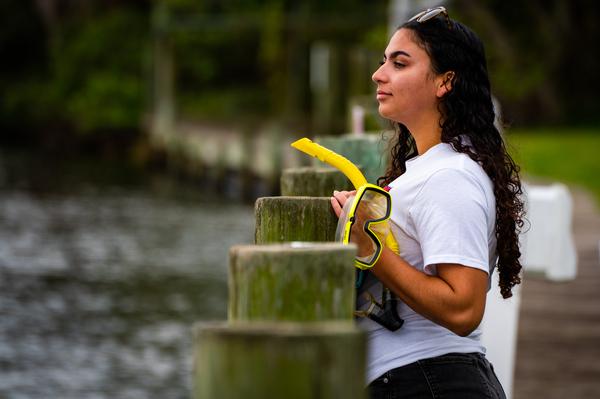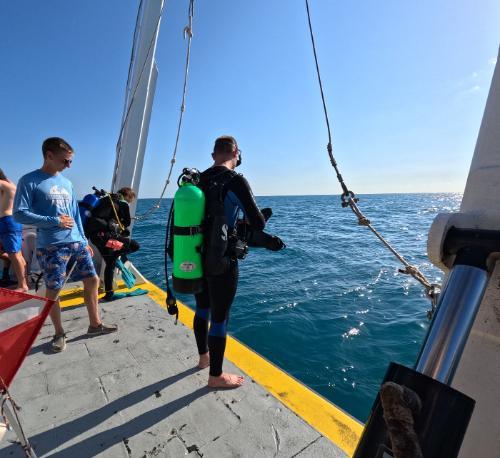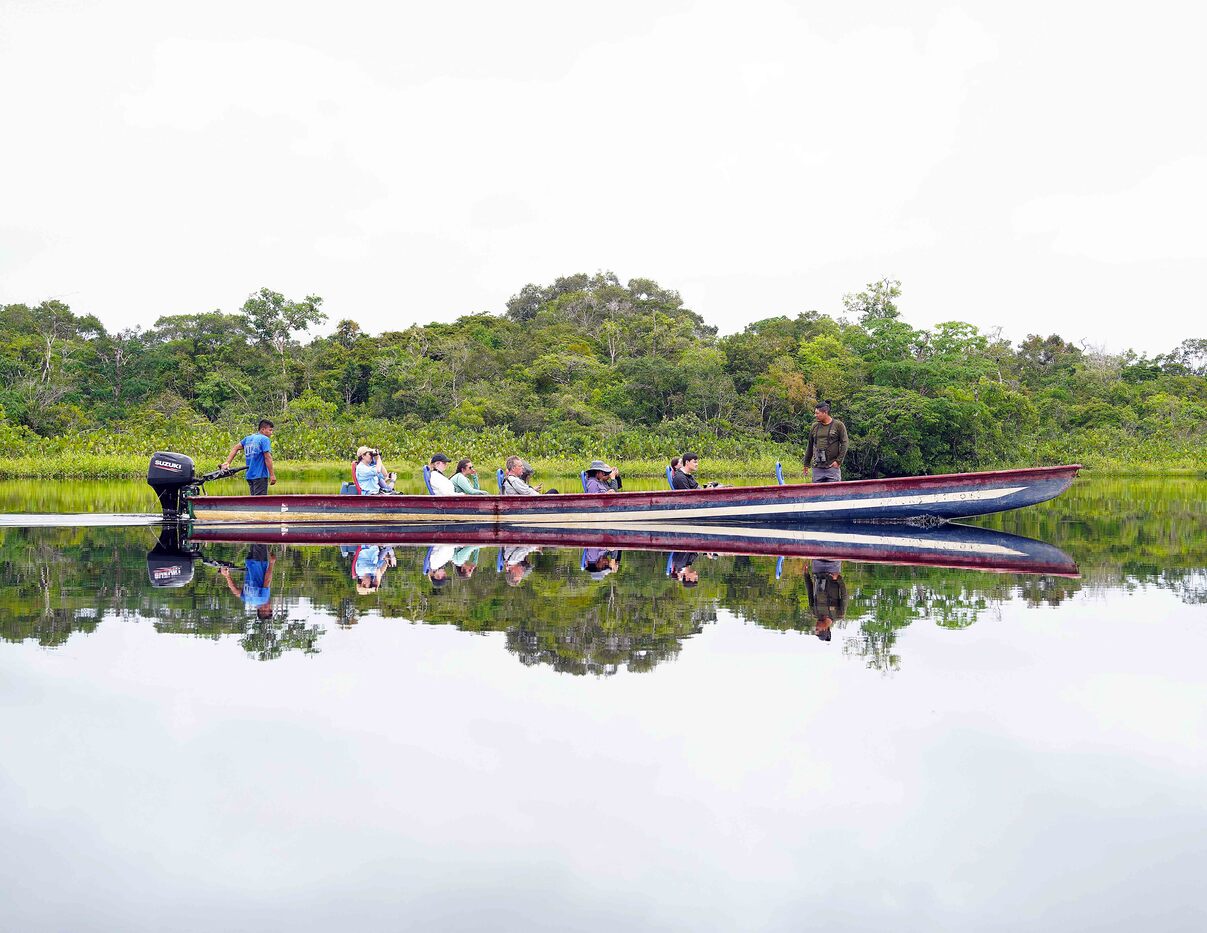Experience Summer Field Course Research
Our marine biology students can take research to a whole new level—above ground and underwater—whether diving in the warm waters of Puerto Rico or the cooler waters of the Galápagos Islands, observing orcas in the Pacific Northwest or contemplating the ecology of the Amazon!
Florida Tech’s summer field courses are exhilarating, hands-on opportunities that provide you with once-in-a-lifetime experiences and a huge résumé boost for career opportunities or further study.
Image: Professor Mark Bush, center of boat, leads Florida Tech students in a summer field course on the Lagartococha River in the Ecuadorean Amazon. Photo credit: Rich Aronson

 Give to Florida Tech
Give to Florida Tech 



